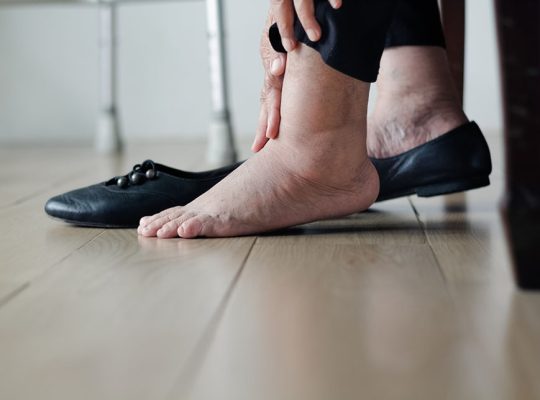Understanding Veterans Care
Veterans have unique healthcare needs that require specialized attention. Adult day healthcare centers offer tailored programs to support veterans, ensuring they receive the care and respect they deserve.
Key Services for Veterans
- Comprehensive Medical Care: Veterans often have complex medical histories. Adult day healthcare centers provide comprehensive medical evaluations, regular health monitoring, and access to specialized treatments.
- Mental Health Support: Many veterans experience mental health challenges, including PTSD and depression. Professional counselors and therapists at these centers offer individual and group therapy sessions to address these issues.
- Social Engagement: Social interaction is crucial for mental well-being. Veterans care programs include activities and events that foster camaraderie and community, helping veterans reconnect with peers who share similar experiences.
Working with Professionals
- Qualified Staff: Ensure the center you choose employs professionals experienced in veterans’ healthcare. This includes nurses, therapists, and social workers trained to understand and address the unique needs of veterans.
- Coordinated Care: Veterans care often involves multiple healthcare providers. Professionals at adult day healthcare centers coordinate with VA hospitals and other medical facilities to provide seamless care.
- Benefit Navigation: Navigating veterans’ benefits can be challenging. Professional case managers assist veterans in understanding and accessing their entitled benefits, ensuring they receive comprehensive care without financial strain.
Specialized Dementia Care
Caring for individuals with dementia requires specialized knowledge and compassionate support. Adult day healthcare centers offer structured programs designed to enhance the quality of life for those with dementia.
Structured Activities
- Cognitive Stimulation: Activities such as puzzles, memory games, and arts and crafts help stimulate cognitive function. These activities are tailored to the abilities of each individual, ensuring they remain engaged and challenged.
- Physical Exercise: Regular physical activity improves overall health and can slow the progression of dementia. Programs include gentle exercises like walking, stretching, and dancing, promoting physical well-being and reducing agitation.
- Routine and Consistency: Maintaining a consistent daily routine helps reduce confusion and anxiety. Centers provide a structured environment where individuals know what to expect, creating a sense of security and stability.
Professional Care
- Trained Caregivers: Dementia care requires patience and specialized skills. Ensure the center employs caregivers trained in dementia care, capable of handling the challenges associated with the condition.
- Person-Centered Approach: Effective dementia care focuses on the individual’s preferences and history. Professionals at these centers develop personalized care plans that respect each person’s unique needs and preferences.
- Family Support: Dementia affects not only the individual but also their family. Professionals offer support groups and educational resources to help families understand the condition and cope with its challenges.
Effective Case Management
Case management is a critical component of adult day healthcare, ensuring each individual receives personalized, coordinated care.
Benefits of Case Management
- Individualized Care Plans: Case managers develop comprehensive care plans tailored to each person’s needs. These plans include medical care, social activities, and support services, ensuring holistic care.
- Coordination of Services: Effective case management involves coordinating services from multiple providers. This includes medical appointments, therapy sessions, and community resources, ensuring seamless and efficient care.
- Advocacy: Case managers advocate for the individual’s needs, ensuring they receive appropriate services and support. They work closely with families, caregivers, and healthcare providers to address any issues or concerns.
Working with a Professional Case Manager
- Initial Assessment: A professional case manager conducts a thorough assessment to understand the individual’s needs, preferences, and goals. This assessment forms the basis of the care plan.
- Ongoing Monitoring: Regular monitoring ensures the care plan remains effective and is adjusted as needed. Case managers track progress, address emerging issues, and make necessary changes to the care plan.
- Resource Navigation: Case managers help individuals and their families navigate complex healthcare systems and access available resources. This includes finding financial assistance, community programs, and specialized services.
Long-Term Care Services
Long-term care services are essential for individuals with chronic health conditions or disabilities. Adult day healthcare centers provide these services, helping individuals maintain their independence and quality of life.
Essential Long-Term Care Services
- Medical Care: Regular medical care is crucial for managing chronic conditions. Centers provide routine health checks, medication management, and access to specialized medical treatments.
- Rehabilitation: Rehabilitation services such as physical, occupational, and speech therapy help individuals regain or maintain their functional abilities. These services are tailored to each person’s specific needs and goals.
- Personal Care: Assistance with daily activities such as bathing, dressing, and eating is provided by trained caregivers. This support helps individuals maintain their dignity and independence.
Professional Support
- Qualified Healthcare Providers: Ensure the center employs qualified healthcare providers, including doctors, nurses, and therapists, who are experienced in long-term care.
- Interdisciplinary Team: Effective long-term care involves an interdisciplinary team approach. Professionals from various fields collaborate to provide comprehensive care and address all aspects of the individual’s health and well-being.
- Family Involvement: Professionals encourage family involvement in the care process. They provide education and support to help families understand and manage their loved one’s condition.
Engaging in the Silver Sneakers Program
The Silver Sneakers program promotes physical fitness and social engagement for older adults, enhancing their overall well-being.
Program Benefits
- Physical Fitness: The program offers a range of fitness classes designed for older adults. These classes improve strength, flexibility, and cardiovascular health, helping participants stay active and healthy.
- Social Interaction: Silver Sneakers classes provide opportunities for social interaction, reducing feelings of isolation and promoting mental well-being. Participants can connect with peers and build supportive relationships.
- Accessible Locations: The program partners with various fitness centers, making it easy for participants to find classes in convenient locations.
Participation Tips
- Consult a Professional: Before starting any new fitness program, consult with a healthcare professional to ensure it is safe and appropriate for your health condition.
- Start Slowly: Begin with classes that match your fitness level. Gradually increase the intensity and frequency of your workouts as your fitness improves.
- Stay Consistent: Regular participation in Silver Sneakers classes is key to reaping the benefits. Aim to attend classes consistently and make physical activity a part of your routine.
Enhancing Quality of Life
Adult day healthcare centers play a vital role in enhancing the quality of life for older adults. By providing specialized care, structured activities, and professional support, these centers help individuals maintain their independence, health, and well-being. Whether it’s veterans care, dementia care, or engaging in the Silver Sneakers program, taking advantage of these services can significantly improve the quality of life for older adults and their families.






